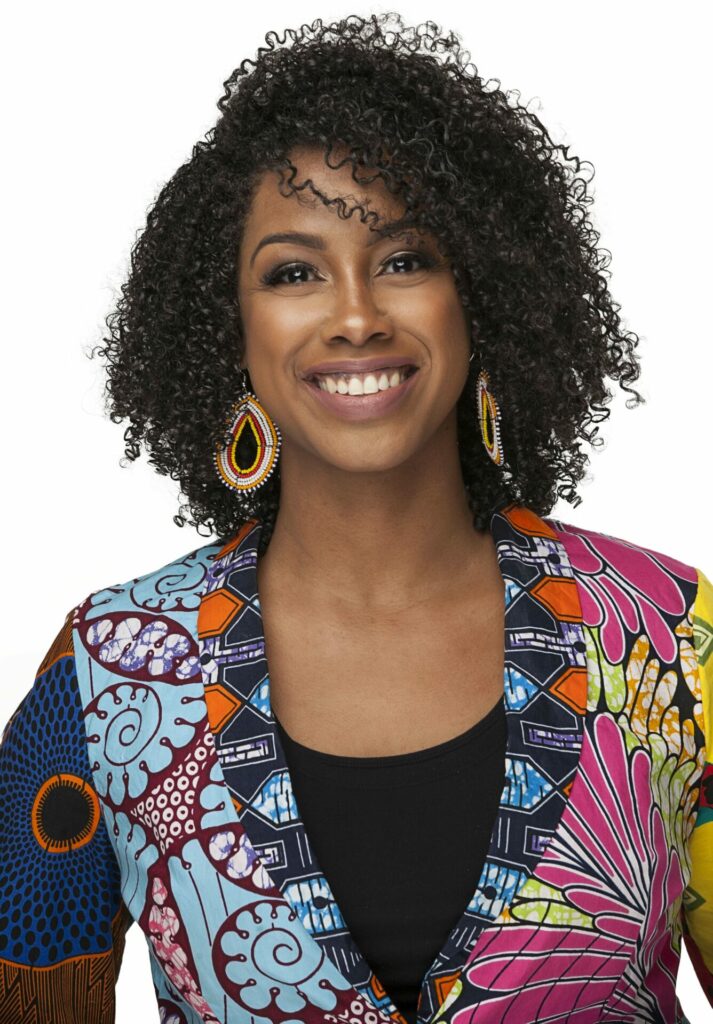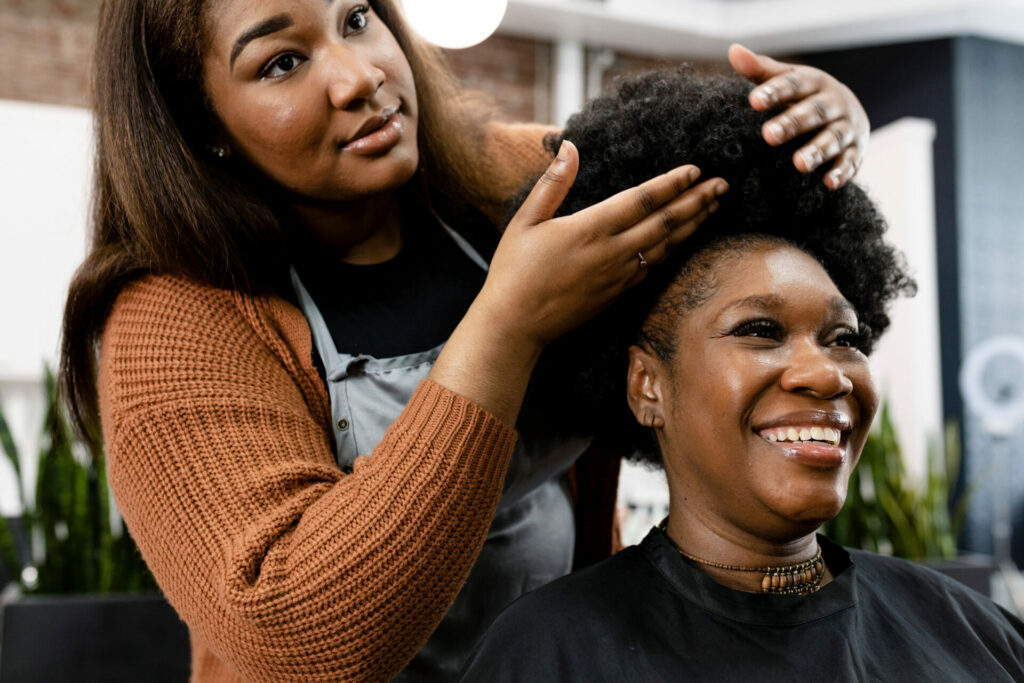Posts Tagged ‘#blackhairsalons’
Hair as healing: the healing power of Black hair salons
“There is power in community, and I saw that growing up the daughter of a salon owner… I watched my mother nurture and heal those women in her salon, not just by making them look and feel beautiful but by talking with them, listening to them, and connecting with them. I’ve seen how much Black women’s emotions are attached to our hair and beauty.“
– Beyonce – Harper’s Bazaar interview August 10, 2021
Black hair is art, a language linked to our history and a part of our identity. Our hair affects how we see ourselves and how we are perceived in the world. Bursting with expression, it is deeply tied to those who have our permission to touch our hair. That’s why the relationship between Black women and their stylists is sacred, and the time spent in the shop should be therapeutic. Dr. Afiya Mbilishaka—head of psychology at the University of the District of Columbia, hairstylist and founder of PsychoHairapy—believes the link between routine hairstylist appointments and therapy can be a gateway to improved mental health. “Rituals are how we prepare our mind, body and spirit to receive something or do something,” she says. “The ritual of haircare…can help ready yourself for what you are about to face.”
Work is key to economic survival for most Black women who have a more difficult time than their peers coping with the unique stress associated with their jobs. “Half of my clients hate their jobs,” says Kay Simpson, owner and stylist at True Perfection Salon in Houston. “As I listen, I hear that many of them are there for the pay and not because they love it or feel supported,” she says.
“hair dying and cutting are ways Black women can express grief and loss.”
When clients are in the chair, they often share personal information with their stylists, who become pseudo-therapists, listening and giving advice after they have established trust. “Hairstylists are sort of a keeper of secrets,” says Mbilishaka. She trains hair care professionals in the art of active listening through her PsychoHairapy practice. She works with them to relax the natural instinct to give clients advice. “I recognized the hardest skill I had to learn as a therapist was how to listen. It’s really difficult.” She cautions that while in the chair, only part of the story may surface, so it’s best to be a safe place for the client to vent instead of looking for solutions.
In addition to listening to clients’ stories, hairstylists can hear what isn’t being said by evaluating the hair. “I’ve had clients whose hair is shedding, and the density has changed because of emotional stress from work and life,” says Simpson. Drastic changes to hairstyles can also be a sign that something is going on with the client. Mbilishaka says that hair dying and cutting are ways Black women can express grief and loss. Hair can also communicate if the client drinks enough water, sleeps and eats the right foods.
Stylists aren’t certified therapists, and that can be a heavy burden to place on them. For this reason, Mbilishaka focuses on practical skills in the PsychoHairapy curriculum, such as how to assess whether a client should seek professional help, including signs that they may either be of harm to themselves or others. Stylists also learn the distinctions between various mental health professionals and how clients can benefit from being connected to the right source. “Everyone gets a certified list of curated providers in their area so that if they want to refer a client to a therapist, they actually have names, locations and websites to share,” says Mbilishaka.
“Hairstylists are sort of a keeper of secrets”
Simpson agrees that it is vital for hairstylists to be able to see the signs that their clients need to seek professional help. However, she adds that mental health professionals should better understand the positive effects hair can have on their clients. “I wish doctors would prescribe for women to get their hair done as a part of therapy because it lifts their mood and can change their perspective.” According to Simpson, a new do can improve clients’ spirits. “I’ve seen women come in here feeling ‘a way’ and leave ready to go to happy hour or go back to work ready to slay.”
While many stylists focus on providing a service and helping their clients, Mbilishaka says they also need to practice self-care. “Hair care professionals actually need more detoxing, more self-care, more massages, more eating healthy, more comfortable shoes, more community and more water than other people.” She hopes to offer stylists retreats where they can receive the reciprocal opportunity to be loved, cared for and comforted to feel safe.


